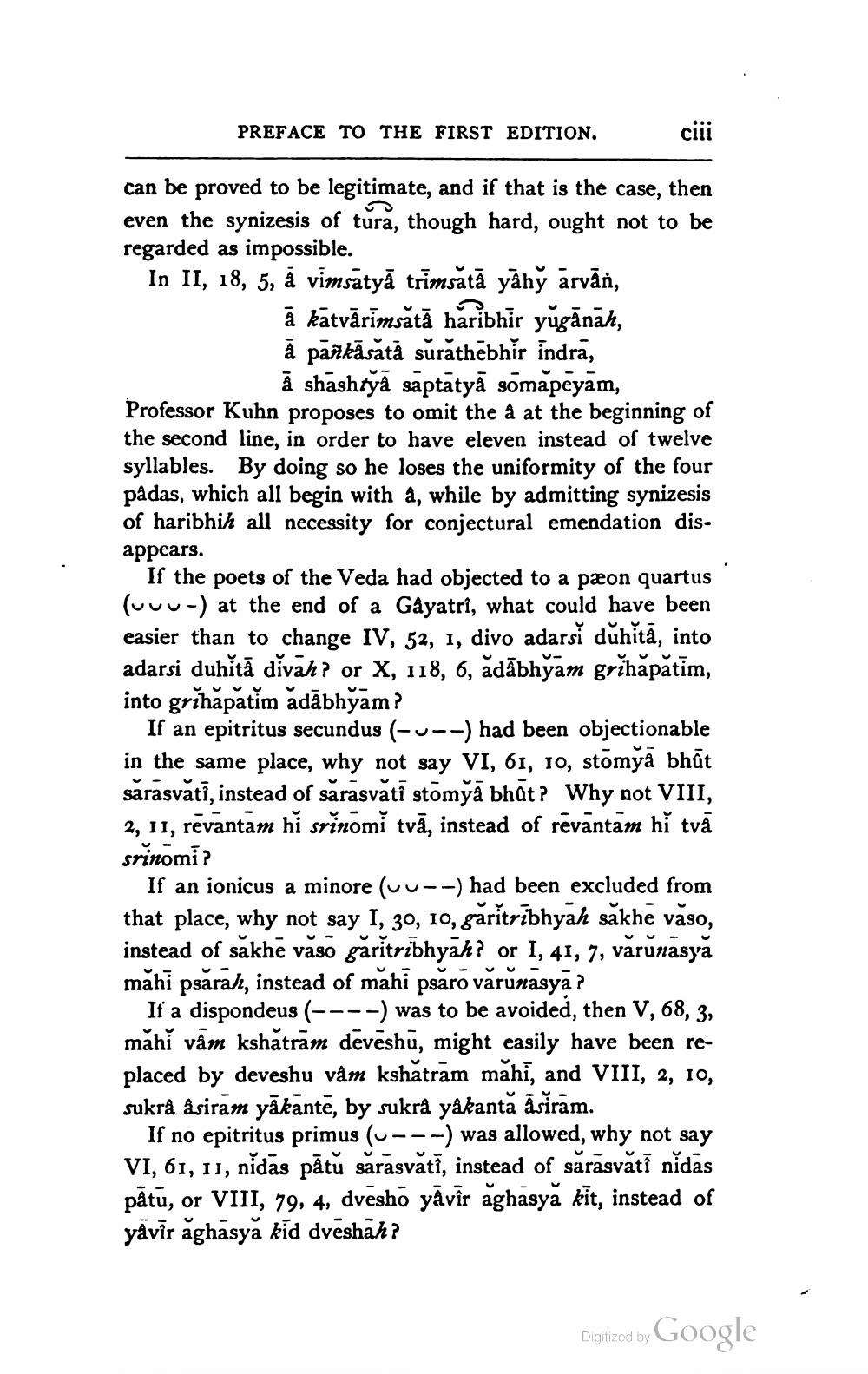________________
PREFACE TO THE FIRST EDITION.
ciji
can be proved to be legitimate, and if that is the case, then even the synizesis of từră, though hard, ought not to be regarded as impossible. In II, 18, 5, å vimsatyā trimsătā yâhị ārvār,
ā kātvārimsătā haribhir yügānāh, ā parkāsată surathēbhir indra,
ā shashtýā saptatyā somapeyām, Professor Kuhn proposes to omit the à at the beginning of the second line, in order to have eleven instead of twelve syllables. By doing so he loses the uniformity of the four pådas, which all begin with a, while by admitting synizesis of haribhih all necessity for conjectural emendation disappears.
If the poets of the Veda had objected to a pæon quartus (uuu-) at the end of a Gayatrî, what could have been easier than to change IV, 52, 1, divo adarsi dùhitā, into adarsi duhỉtā divah? or X, 118, 6, adābhyam grihapatim, into grihăpătim adābhỹam?
If an epitritus secundus (-u--) had been objectionable in the same place, why not say VI, 61, 10, stūmyā bhūt sarasvatī, instead of sarasvati stomýā bhāt? Why not VIII, 2, 11, revantam hi srinomi tvā, instead of revantam hỉ tvā srinomi?
If an ionicus a minore (uU--) had been excluded from that place, why not say I, 30, 10, găritrībhyah sakhe vaso, instead of sakhe vaso găritribhyah? or I, 41, 7, varunasya mahi psărah, instead of mahi psăro vărunāsyā ?
If a dispondeus (----) was to be avoided, then V, 68, 3, mahĩ vām kshătrām deveshū, might easily have been replaced by deveshu vam kshătrām māhi, and VIII, 2, 10, sukra åsiram yākāntē, by sukrå yåkantă āsirām.
If no epitritus primus (u---) was allowed, why not say VI, 61, 11, nidas pātu sarasvatī, instead of sarasvati nidas pātu, or VIII, 79, 4, dvesho yāvīr aghasya kīt, instead of yāvīr àghasya kid dvëshāh?
Digized by Google




